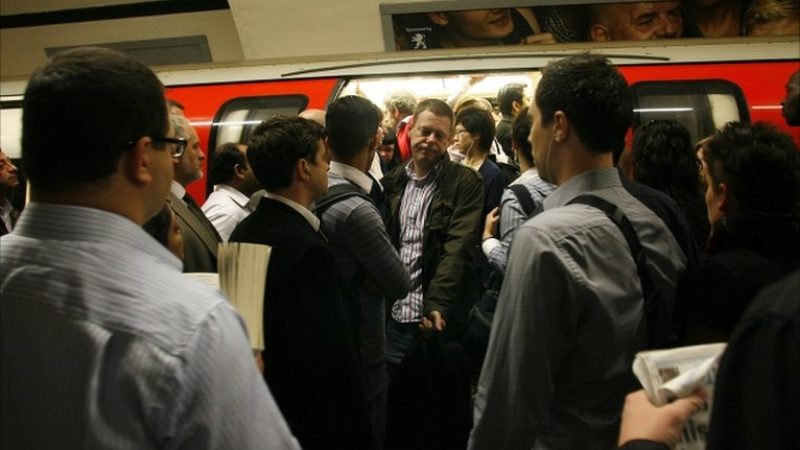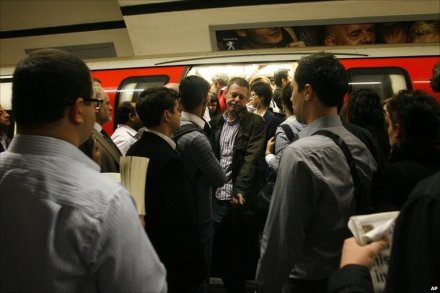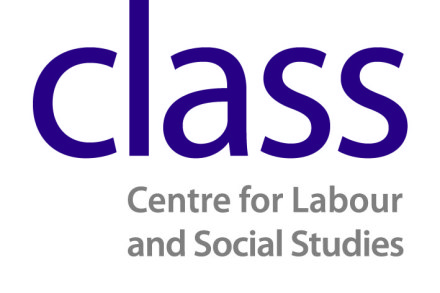
Recently TfL changed peak times from 6.30am-9.30am to 4.30am-9.30am. I don’t know when or why this happened because there is very little information about it on the website. Perhaps the managers didn’t like commuters disobediently getting tubes before 6.30am in order to buy off-peak tickets. Perhaps they changed the times just because they can. The details are a mystery.
I found out about this change because I saw several of my friends complaining about it on Facebook – friends of all political persuasions, including those who are persuaded not to be political at all. It stuck in my mind as it seemed a rather salient example of that funny little disconnect that exists between politicians, the media and ordinary people. The stuff we grumble about to each other at work, at home, in the pub is largely unrepresented by the debates politicians have or the issues that make headlines. Even though that two-hour change is probably a big deal to quite a lot of early bird Londoners; reading the news, you’d think it hadn’t happened at all.

That same disconnect also appeared to me earlier this year in an article in the Independent about a Facebook status that went viral. It was written by a man called Paul Cookson, who was incandescent about the fact that travel companies feel entitled to double their prices during school holidays, because they know long-suffering parents can’t go at any other time. He wrote: “I choose not to take my daughter out of
school…why should I be penalised for doing the correct thing as a parent?”
Within a matter of days, the status went viral and was shared over 150,000 times. An e-petition was set up and quickly reached the 100,000 signatures needed to force a parliamentary debate. So here’s my question: why on earth did there need to be a petition to force politicians to take notice of an issue that is so obviously important to so many people? Surely there can’t be a British person alive, parent or otherwise, who doesn’t know travel companies do this and doesn’t find it completely craven. The obvious answer is that politicians are so in hock to big companies that they’re afraid to say anything, or that they’re so rich that they genuinely haven’t noticed the exorbitant increase in travel prices during school holidays. Perhaps – but I think there might be another explanation too. I think politicians find these issues somewhat petty and apolitical; I think they might consider these issues too menial to bother with.
The anger people feel over increases to their train fare, or the price of their holiday, is deeply political. Sure, it derives from anxiety about money and upset at not being able to do nice things. But underneath all of that is simmering indignation that a big, unaccountable body (usually a private company, though not in TfL’s case) is squeezing as much money out of them as it possibly can, simply because it can get away with it. This is neoliberalism, and this is how it expresses itself in people’s everyday lives. You might not get a critique of Hayek when you talk to the average punter about train journeys being too expensive, but look at what Paul Cookson said about travel companies after he was interviewed about his viral Facebook post: “At the moment they are hiding behind supply and demand but really it’s greed.” When it comes to analyses of neoliberalism, what more is there to say?
I’m thinking of this in light of the rise of UKIP (for that is apparently the lens through which we must now view all politics). With his tedious railing against “career politicians,” Nigel Farage has managed to capture something Ed Miliband alluded to when he first came up with the somewhat wonkish idea of One Nation – that there is an unaccountable elite living by different rules to ordinary people. Farage’s weakness is that he can’t actually do anything about this unaccountable elite because his rhetoric is total bollocks (am I allowed to say bollocks on LabourList or is it part of the censorious EU tyranny UKIP is trying so desperately to warn us about?). Ultimately Farage wants private companies to raise prices with gay abandon because of the free market or something, so this is a stand he can’t take. Instead it is territory Labour can own completely, because technically Labour shouldn’t be as enamoured by unbridled capitalism as UKIP is – ahem.
When Virgin trains charges someone £90 to sit in an overheated foul-smelling vestibule for 4 hours, which is a totally made-up example and definitely not something I’m still bitter about, Labour should be talking about it. This is the kind of politics that really riles people up. Hell, even I forget everything I know about rail nationalisation and descend into a type of apoplexy that would embarrass a Which? consumer activist when I’m forced to travel peak time – and I’m the sort of political nerdlinger who writes blogs about Labour policy. This stuff is exactly why we elect politicians in the first place: to stick up for us against such egregious swindling.
I’m not suggesting Labour should abandon big ideas and concentrate solely on consumer activism. That’s the sort of thing a Liberal Democrat would do. I’m saying that Labour should incorporate the detail of everyday life into its analysis of neoliberalism, and use every opportunity it can to demonstrate it is on the side ordinary people and it understands what their lives are like. Farage has shown it doesn’t really matter if you’re posh if you can capture a certain mood. Labour did this when it pledged to freeze energy prices too, but it shouldn’t stop there. It should be talking about the daily rip offs people have to endure to show which side it’s on when it comes to ordinary people vs the Establishment.
Or maybe Ed Miliband should turn off his computer and go outside for a walk. Sometimes I feel sorry for him, having so many amateur politicos telling him what to do.
Ellie Mae O’Hagan is the Media and Communications Officer at Class




More from LabourList
Andy Burnham manifesto: Greater Manchester mayor reveals three key election pledges in bid for third term
‘Labour should grasp the chance to secure EU visa deal for young workers’
‘How Labour could win a Milton Keynes majority for the first time in decades’